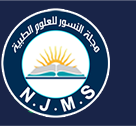Abstract
Background: Menstruation is a natural biological process that significantly impacts women’s physical and emotional well-being. Despite its universality, misconceptions and unhealthy practices surrounding menstruation persist, particularly in low- and middle-income countries (LMICs). This study aimed to assess the knowledge and practices of married and single women regarding healthy menstrual habits in Baghdad, Iraq.
Methods: A cross-sectional study was conducted from December 20, 2022, to February 25, 2023, involving 100 women divided into two groups: 50 single females from the College of Health and Medical Techniques and 50 married employees from Baghdad Teaching Hospital. Data were collected through structured interviews and self-reported questionnaires. Descriptive statistics and frequency analyses were performed using SPSS version 24.
Results: The majority of participants (52%) were aged 25–34 years, and 50% held a bachelor’s degree. Most women (92%) reported drinking natural juices during menstruation, and 55% cited their mothers as the primary source of menstrual information. However, 79% did not exercise during menstruation, and 76% consumed sweets, indicating room for improved health education. High awareness was observed regarding showering during menstruation (86%) and delaying strenuous work (58%).
Conclusion: While women in Baghdad demonstrated moderate knowledge of healthy menstrual practices, gaps remain in areas such as exercise and dietary habits. Targeted health education programs, particularly for younger women, are recommended to address these gaps and promote better menstrual health.
First Page
1
Last Page
7
Recommended Citation
Yaaqoob, Ban Yousif
(2025)
"Bridging the Gap: Awareness of Healthy Menstrual Practices Among Married and Single Women in Baghdad Teaching Hospital: A Cross-Sectional Study,"
Al-Nisour Journal for Medical Sciences: Vol. 7:
Iss.
2, Article 1.
DOI: https://doi.org/10.70492/2664-0554.1144

